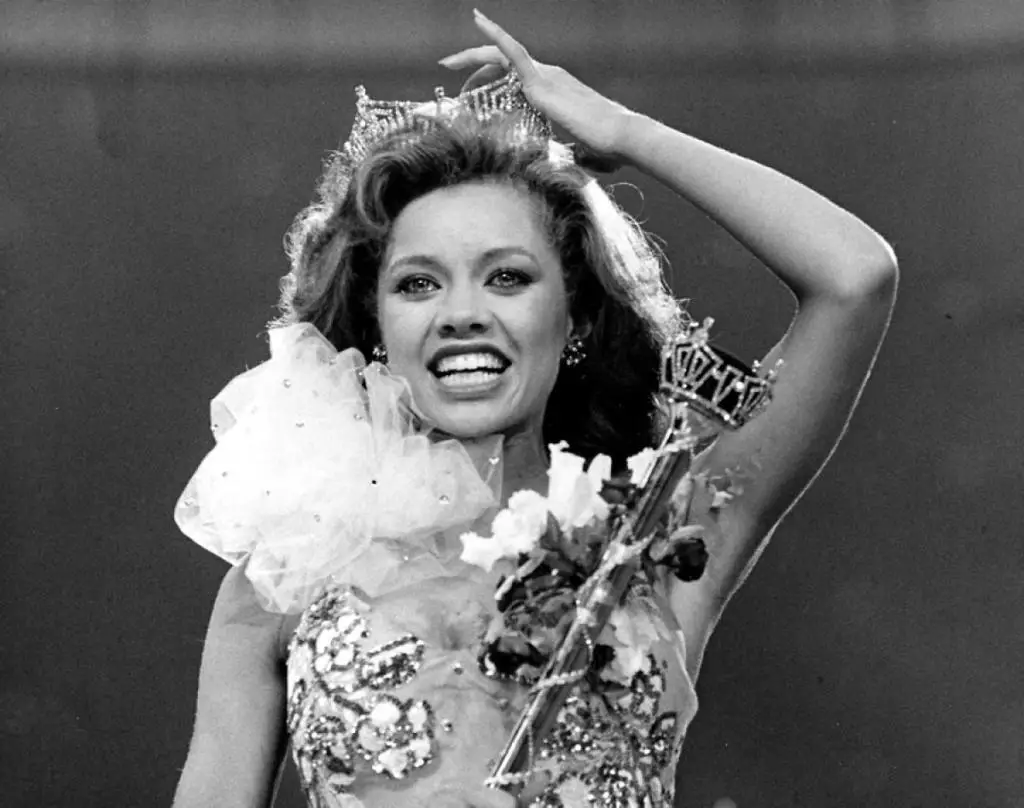Last week, the current chairwoman of the Miss America organization, Gretchen Carlson, a former Miss America herself, announced that in an effort to judge participants more on their merits, the Miss America Pageant will no longer include the swimsuit competition.
Carlson also declared that the 96-year-old national broadcast will now be called a competition instead of a pageant. However, even with the removal of the swimsuit portion, Miss America is still little more than a glorified beauty contest.

The decision to scrap the swimsuit competition was, as Carlson explained, part of an attempt to “represent a new generation of female leaders focused on scholarship, social impact, talent and empowerment.” And although Carlson seems to be saying the right things, her words aren’t exactly connecting with her intentions.
At its core, Miss America was very rarely ever about anything other than appearance. Yes, there are opportunities for participants to show off their skills, passions and intelligence throughout the competition. But realistically speaking, judges typically lean toward women that fit a certain mold.
It wasn’t until 1983 that an African American woman, Vanessa Williams, won the crown — and she was forced to resign after receiving death threats and hate mail after a short seven weeks.

Carlson claimed that getting rid of the swimsuit portion was also part of an effort to join the current cultural revolution. This is, to an extent, commendable.
At the very least, she recognized the misogynistic undertones of having women prance around in a bikini and heels just to be judged on their physical appearance. But unfortunately, this doesn’t suddenly make Miss America a women’s empowerment movement.
Instead, the competition still has two problem areas that need immediate attention before the contest could be considered anything close to a feminist undertaking.
Boost Minority Representation
In all of Miss America’s history, there have been very few minority winners. From 1921 to 1983, white women had a monopoly on the crown. There have been few winners of color throughout the years, including only one Asian American, a contestant from Hawaii
Perhaps the clear of lack of diversity in the pageant — or competition, rather — contributes to why Miss America consistently misses the feminism mark.
There are a few possibilities as to why such few women of color compete and win Miss America. Perhaps their lack of participation stems from a general sense of futility, as minority women tend to know their chances of winning are statistically lower when compared to white women.
But maybe contemplate the fact that, despite what Carlson says, physical appearance matters. A lot.
Even with the swimsuit portion scrapped, judges are still going to emphasize participants’ outward appearance more than anything else. It’s not unheard of for women of color to be perceived as less attractive just because their heritage prevents them from conforming to Western beauty standards. So why compete in something that perpetuates exactly that?
The simple, yet impossible answer here would be to dispute beauty standards altogether. Again, slightly impossible, though feminists have been fighting that uphill battle for decades. Instead, maybe it would be helpful to alter the consistently white narrative Miss America has been pushing, regardless of whether or not it’s intentional.
In order for Miss America to become the pro-women’s movement they’re attempting to be, it’s time for them to embrace diversity.
Bring in more minority judges (and on that note, get rid of male judges, too) and adopt the real American narrative of true racial diversification. If Miss America is supposed to represent the nation as a whole, then why wouldn’t women of color win more often when approximately 41 percent of the population isn’t white?
Boost LGBTQ+ Representation
But, any significant effort to become a more inclusively feminist organization has to do more than just support women; it would have to support every woman that identifies as such.
In this day in age, gender is often looked at as a social suggestion rather than a concrete formula. Non-binary individuals exist, as well as those born as males that identify as females, and vice versa. If Miss America is supposedly joining the “cultural revolution,” why is it forgetting these people?
It wasn’t until 2016 that the first openly gay contestant competed in Miss America, though she didn’t even make it past the top 15. But that’s about the extent of LGBTQ+ individuals being involved with the competition.
The same question remains: Why is there such a lack of representation in a competition that claims to be progressive? At one point in time, Miss America was a decently accurate depiction of what the country was like. Strictly white, straight, binary women were being crowned in times in which they were the norm.
Let’s get real, though. Times have drastically changed and so have social norms. Better yet, forget about those constructs! If anything, Miss America should be a way to break out of those imaginary barriers by shining a spotlight on a new brand of people.
If, like Carlson claimed, the competition is no longer about physical appearance, then why shouldn’t the next winner represent the quote-unquote “new normal”?
Miss America’s inability to connect with a feminist agenda isn’t solely about representation, though. Perhaps using the competition as a platform for a progressive movement would improve its undertones.
But at the end of the day, Miss America is still just a shallow contest pitting women against one another, regardless of its intentions or alterations.
The facts are simple. Carlson could make a hundred changes to Miss America in order to update its rather outdated nuances, but the end game — to crown one woman to represent the country — remains the same. The act of purposely placing women against one another with the intention of picking the best is anti-feminist in itself.
Even with the changes that have already been made, Miss America is simply an outdated concept. Above all, it’s disheartening and shallow, and eliminating women implies that they were just not good enough to represent the country.
In a nation where sexism is enforced by its own president and administration, the whole process just seems a bit too hypocritical.
If Miss America truly wants to make an impact and join its feminist counterparts, it’s obvious that it needs to make some serious changes. Its history seems to scream, “We only want straight, white women winning our pageant,” and that’s discouraging enough on its own.
The intentions to become reflective of the 21st century woman might be there, but that goal won’t be executed without proper dedication and representation.
















